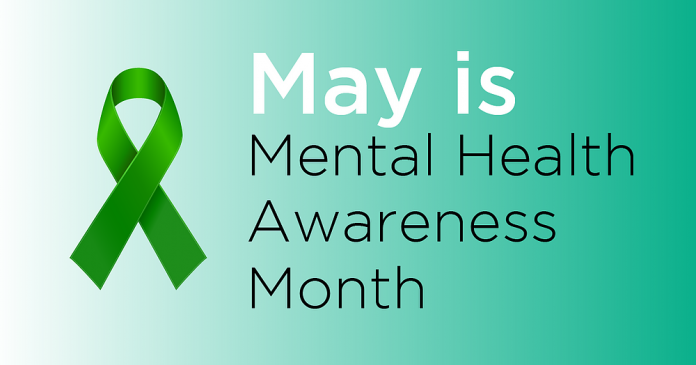Poor mental health affects millions of Americans every year. May is Mental Health Awareness Month, a time when people around the country shine a light on mental health and work to remove the stigma associated with mental illness.
Why does mental health matter, and how can you make your mental health a priority?
Why Mental Health Matters
According to research from the National Alliance on Mental Illness (NAMI), one in five adults in the US experiences mental illness, and one in 20 adults experience serious mental illness. In addition, 17 percent of youths aged six to 17 experience a mental health disorder.
These statistics are sobering. However, there are plenty of treatment plans and ways that you can improve your mental health. Even more importantly, the conversation about mental health has shifted. The coronavirus pandemic has shone a spotlight on the importance of mental health and has helped remove the stigma surrounding mental illness.
Improving Mental Health: The Basics
Experts at the Anxiety and Depression Association of America recommend the following steps to improve:
- Prioritizing sleep
- Maintaining a balanced diet
- Exercising regularly
- Getting involved and socializing
- Participating in a hobby
These are all excellent ways to maintain and/or improve your mental health. Some people want to take their mental health even further and can choose to implement these additional practices to supplement a healthy lifestyle:
Yoga: yoga blends gentle exercise with mindfulness. By reminding practitioners to stay in the moment, a calming yoga practice positively impacts mental health.
Breathwork: breathing deeply and mindfully is a great way to improve mental health.
Gratitude journaling: in the hustle and bustle of daily life, it can be easy to forget all of the things we are grateful for in our lives. Gratitude journaling involves writing down three things that you’re thankful for every single day. A gratefulness journal can improve mental health when done.
Spending time in nature: nature has fantastic health benefits. Recent research from Harvard Medical School even found that getting outside can reduce anxiety, depression, and stress. Spending regular time outdoors is a great way to prioritize mental health.
These practices help you stay in the moment, decreasing anxiety and allowing you to put things in perspective.
Mental Health Spotlight: Seniors
According to the Center for Disease Control, 70 percent of Americans over the age of 65 suffer from depression. Many seniors experience shifts in life (and in health) that can be overwhelming and isolating. The past year has certainly amplified some of this.
How can seniors prioritize mental health? The experts at Vineyard John’s Creek share their best tips below:
Socialize: encourage the seniors around you (or yourself) to get involved in volunteer programs, community programs, family gatherings, or even auditing a class at a local university. Seniors who socialize are less likely to suffer from depression and other mental health issues than those who feel isolated and alone. However, seniors with untreated hearing loss (those who don’t wear hearing aids for seniors) have higher rates of depression, anxiety, and other psychosocial disorders.
Exercise: exercise has fantastic benefits for your physical and your mental health. Walking, yoga and light weightlifting are all great ways to get active. Seniors should aim to get 150 minutes of exercise per week.
Read a new book: books engage our minds in different ways than TV, forcing us to use our imaginations to create new scenes and develop story lines. Reading can also improve memory – crucial for seniors’ mental health.
When to Get Help
Sometimes, prioritizing mental health isn’t quite enough. Some behaviors and habits are severe enough to warrant speaking to a professional. According to NAMI, you should contact a professional if you experience any of the following symptoms:
- Extreme worry or fear
- Feeling very sad or low
- Issues with concentration or learning
- Extreme mood changes
- Changes in sleeping habits, including excessive tiredness
- Substance abuse
- Inability to handle daily activities, problems, or stressors
A professional will advise you on the next steps and give you the help you need.
Getting the Help You Need
One of the most significant barriers to good mental healthcare is access. Many people don’t understand how to access a therapist or psychiatrist and their options in terms of payment. However, the Affordable Care Act has made mental healthcare and treatment options far more accessible. The insurance experts at HealthMarkets have broken down some of the essential information about the Affordable Care Act and insurance for mental healthcare below:
The Affordable Care Act covers mental health and substance abuse disorder services: health plans will also cover screening for depression in adults and behavioral assessments for children. The Act also prevents patients from being denied coverage or charged more for mental illness.
Medicaid mental health treatment varies according to plan: the type of mental health coverage available is plan-specific. For more information, contact your healthcare provider.
This Mental Health Awareness Month, we encourage you to take the time to consider your mental health. A few adjustments could lead to a brighter future and a healthier, happier you.












